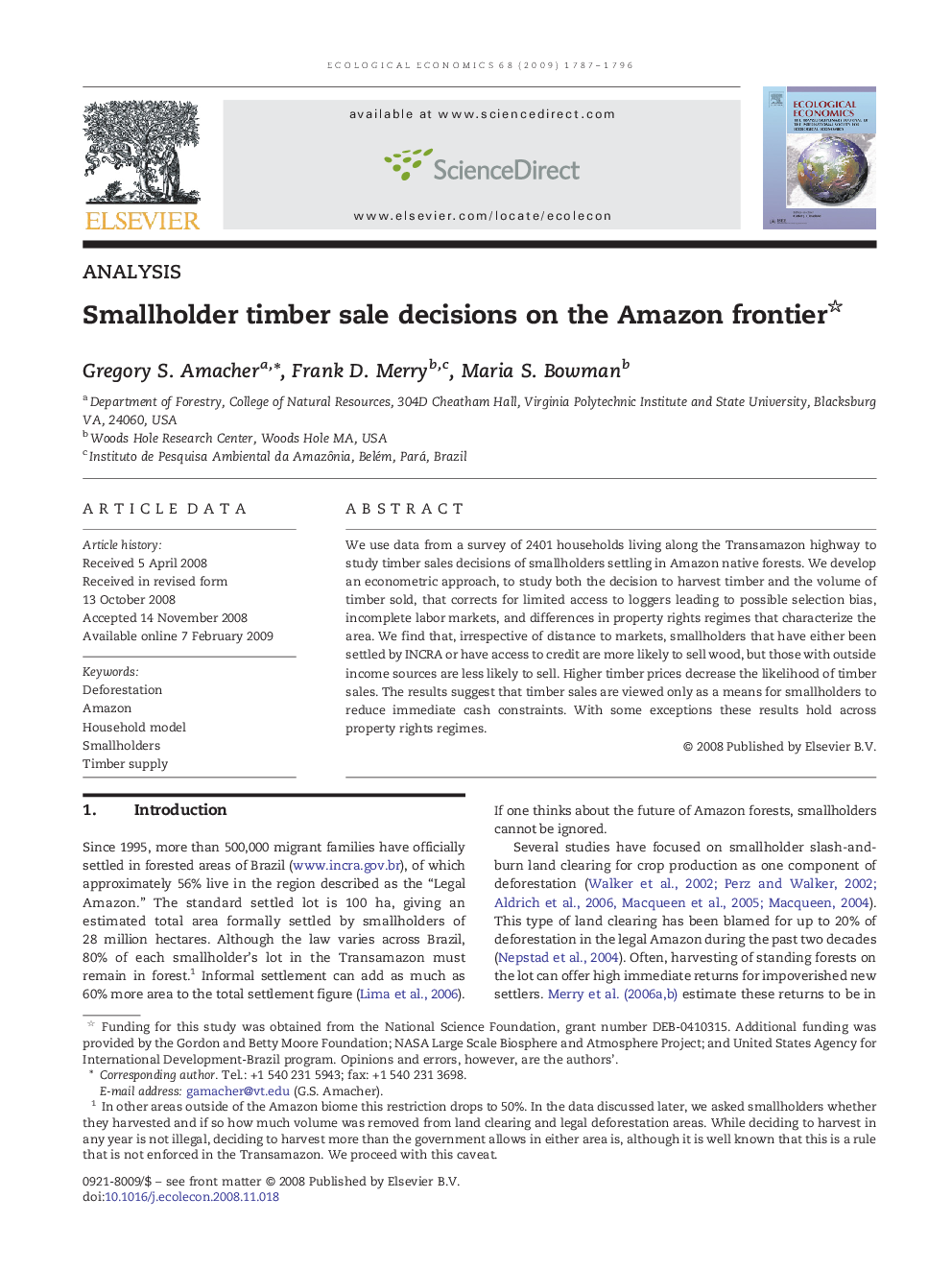| Article ID | Journal | Published Year | Pages | File Type |
|---|---|---|---|---|
| 5051461 | Ecological Economics | 2009 | 10 Pages |
Abstract
We use data from a survey of 2401 households living along the Transamazon highway to study timber sales decisions of smallholders settling in Amazon native forests. We develop an econometric approach, to study both the decision to harvest timber and the volume of timber sold, that corrects for limited access to loggers leading to possible selection bias, incomplete labor markets, and differences in property rights regimes that characterize the area. We find that, irrespective of distance to markets, smallholders that have either been settled by INCRA or have access to credit are more likely to sell wood, but those with outside income sources are less likely to sell. Higher timber prices decrease the likelihood of timber sales. The results suggest that timber sales are viewed only as a means for smallholders to reduce immediate cash constraints. With some exceptions these results hold across property rights regimes.
Related Topics
Life Sciences
Agricultural and Biological Sciences
Ecology, Evolution, Behavior and Systematics
Authors
Gregory S. Amacher, Frank D. Merry, Maria S. Bowman,
